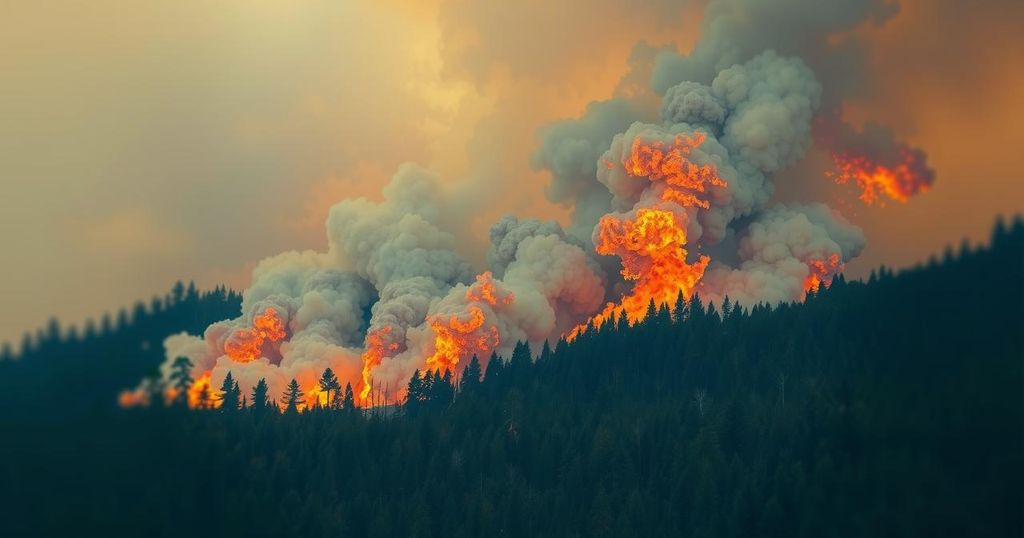The Impact of Climate Change on Forest Fires and Public Health
Climate change has aggravated forest fires, increasing the area burned by nearly 16% between 2003 and 2019, especially in vulnerable regions such as Australia and South America. This increase has resulted in heightened air pollution, leading to a rise in fire-related health issues and deaths, which have surged from 46,400 in the 1960s to approximately 98,750 by the 2010s, complicating public health scenarios.
Climate change exacerbates the severity and frequency of forest fires, posing significant risks to both environmental health and public well-being due to heightened air pollution. A study published in the journal Nature Climate Change by researchers from the federal technology institute ETH Zurich indicates that from 2003 to 2019, the area affected by forest fires increased by nearly 16% compared to scenarios without climate change. The study specifically identified regions like Australia, South America, western North America, and Siberia as particularly vulnerable. Although there has been an overall 19% decrease in the area burned, this is attributed to agricultural expansion and other land uses, resulting in fewer forested areas available for burning. The researchers noted that while heat and drought conditions do not directly ignite fires, they significantly increase forest susceptibility and severity of these fires when they do occur. “Our study shows that once fires occur, the impact of climate change becomes increasingly significant with drier and warmer weather conditions,” stated co-author Chantelle Burton from the UK Met Office Hadley Centre in Exeter. Additionally, a separate study led by Chae Yeon Park from the Japanese National Institute of Industrial and Science Technology examined the health impacts of fire-related air pollution. It found that global deaths due to air pollution from fires increased dramatically—from approximately 46,400 per year in the 1960s to around 98,750 in the 2010s. From the findings of the first study, over 12,500 deaths annually can be attributed to climate change-induced fire pollution in the 2010s, compared to around 670 in the 1960s. Regions such as South America, Australia, and Europe have been most heavily impacted. “Our research makes it clear that climate change increasingly poses a threat to public health, as smoke is also affecting densely populated areas more frequently,” explained lead author Park. Notably, some regions, like South Asia, have experienced less fire-related fatalities owing to increased humidity related to climate changes. The analysis presented is purely epidemiological, aiming to illustrate the statistical relationship between particulate matter pollution and its health effects, rather than establishing direct causality. This comprehensive research highlights the urgent need to address both the environmental consequences of climate change and the ensuing public health risks as a consequence of more frequent and severe forest fires.
The increase in forest fires globally has been linked to climate change, which alters weather patterns, leading to hotter and drier conditions that create ideal circumstances for fire outbreaks. Forest fires not only have devastating environmental effects but also contribute to significant public health challenges, particularly through increased air pollution. Research indicates that certain regions are more susceptible to the ramifications of climate change, prompting a need for comprehensive assessments of fire-related health impacts over the years. The findings underscore the interplay between environmental degradation and public health, emphasizing the urgency for proactive measures in addressing climate-induced challenges.
The findings underscore a critical intersection between climate change, environmental health, and public well-being. The increase in the frequency and severity of forest fires exacerbated by climate change is significantly impacting air quality and corresponding health outcomes worldwide, necessitating urgent action to mitigate these effects.
Original Source: www.swissinfo.ch




Post Comment